
The story of Karex: how a rubber company in conservative Malaysia became the world’s largest condom maker
- The Goh family started a rubber processing company in the 1920s, and changed to making condoms in the 1980s
- They won over conservative Malaysians by producing condoms with fun flavours such as durian, nasi lemak and rendang
Established in 1988, Karex is the world’s biggest condom manufacturer, producing prophylactics for some of the largest brands in the world, including Durex.
It may come as a surprise to some that a maker of condoms is based in Malaysia, given its conservative, mainly Muslim society, but the company has made its products easier to talk about by making them fun and accessible.
The Karex story began when the first generation of the Goh family landed in Malaysia (then Malaya) from China in the 1920s. They found themselves amid rubber plantations in the southern state of Johor, where they ran a small shop, and instead of cash they accepted rubber as payment, which led to the opening of the family’s own rubber processing factory.
As Goh Miah Kiat, the chief executive officer of Karex and a member of the fourth generation of the family to be involved in the business, recalls: “My grandfather, Goh Huang Chiat, and my father industrialised the process with a smoke house that dried the rubber efficiently at a much faster pace.
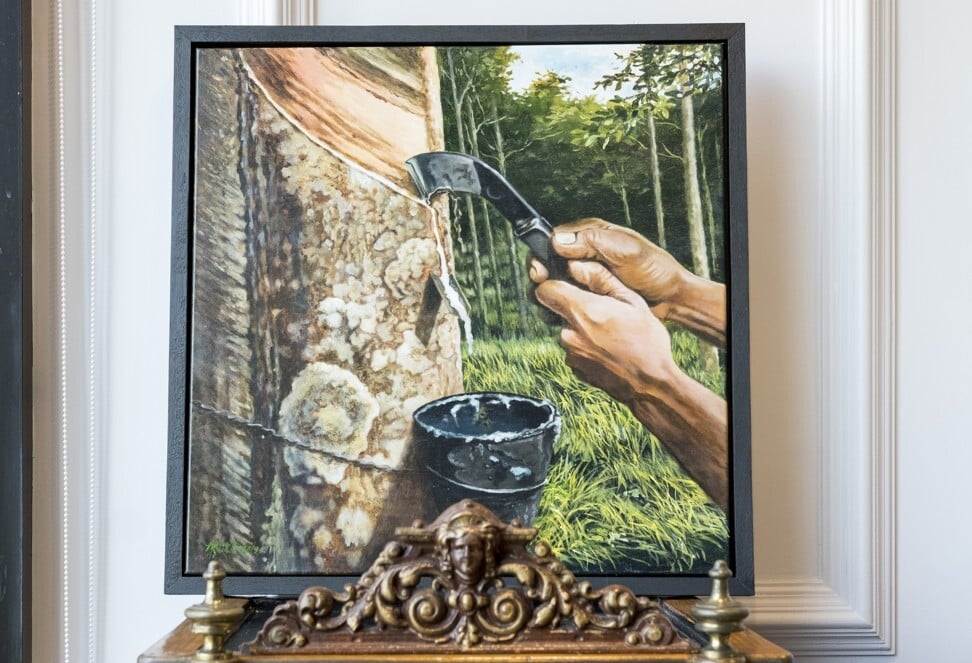
“When I was a kid I actually lived in this rubber processing factory where everything stank of rubber. When I complained to my grandfather, he asked me to open the window and just breathe in because, according to him, the air smelled like money.”
The world had become engulfed by the HIV/Aids epidemic by the late 1980s. Seeing the dire need for condoms, gloves and other protective gear, the family decided to make the leap from rubber processing into finished products. In 1988, the company made a swift transition from producing different types of medical supplies to focusing on condoms.
How Lotte went from making gum to a global leisure giant
“We learned everything about the process only after we bought our first machine. My uncles Goh Siang and Goh Leng Kian were in charge because they were both certified engineers,” Goh Miah Kiat says.
“In the beginning, it wasn’t easy to sell our condoms. People were more inclined to buy well-known international brands. This is the same kind of brand familiarity that people always look for when buying items like toothpaste, shampoo or even medicine,” he explains.
At this point the company was called Banrub – “ban” means plentiful in Teochew, the family’s native Chinese dialect, and “rub” was short for rubber. The name was not much of an asset when the company was struggling in the early 1990s and so it was relaunched as Karex in 1994. The new name is a combination of the words “caring” and “excellence”.
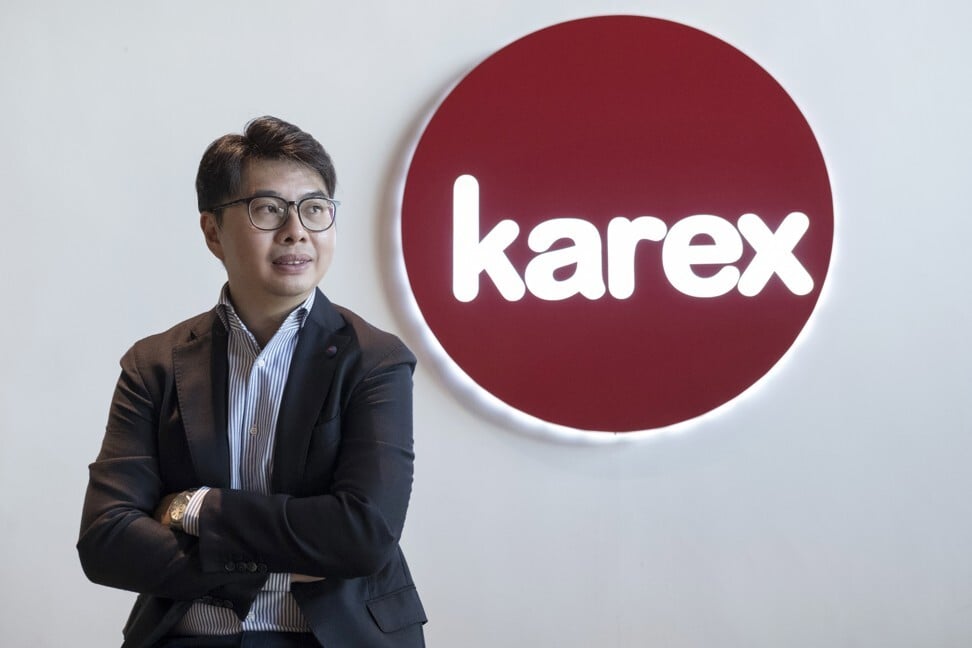
When the change of name brought the company better luck and fortune, Karex moved production to a bigger plant in Johor’s Pontian district that same year. The location, near the country’s main ports and directly across the border from Singapore, made transporting goods easier.
“I learned a lot in the early days. I took over sales and marketing after completing my studies in Sydney because I liked the challenge of trying to sell things. I was doing very well, but being young I still wanted to travel and explore the world.
“One trip that really changed my life was when I travelled to Uganda. We hear about HIV and Aids all the time, but most of us have not really seen people who suffer from it because people don’t really talk about it,” says Goh.
Witnessing the situation in Uganda and learning that more than 30 million Africans had been infected by the disease made him realise the importance of his company’s products and understand that he had the power to change and save lives.
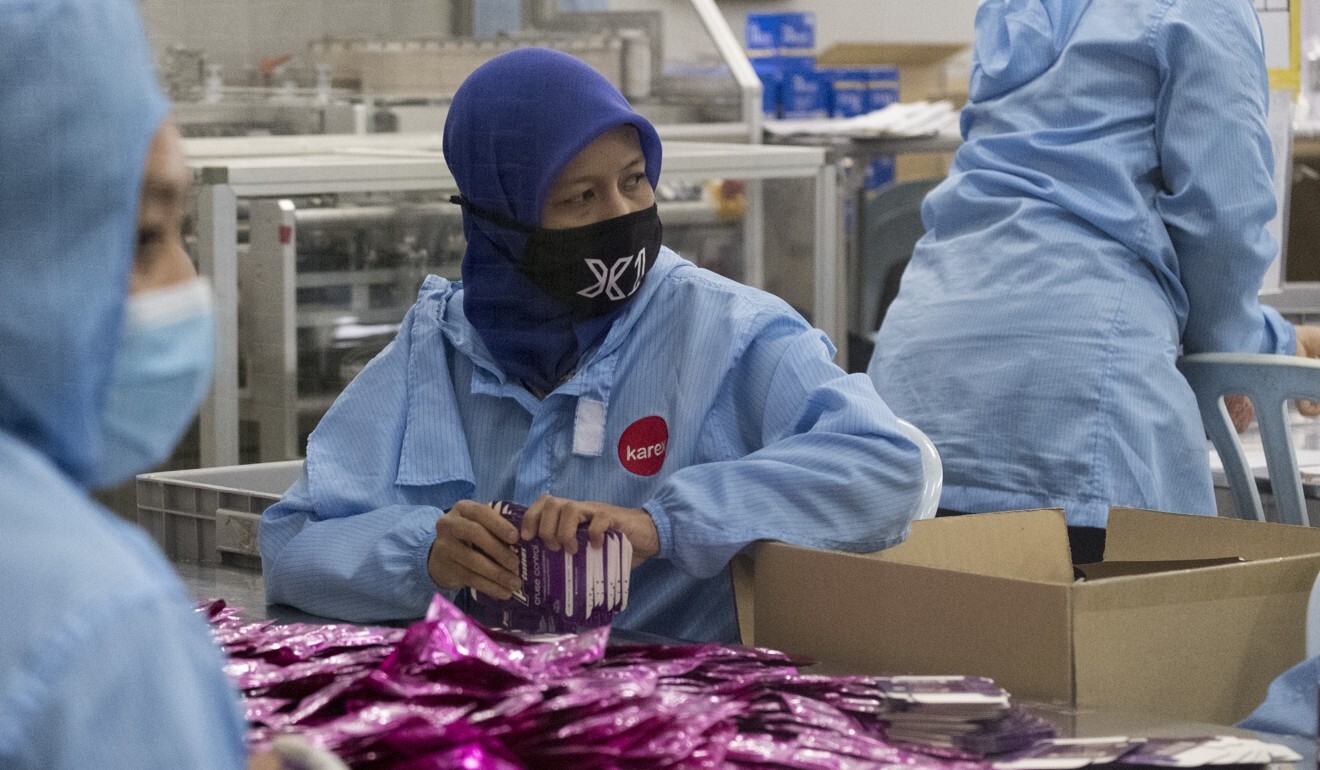
Karex takes pride in making products that people actually want instead of simply need. With its engineering expertise, the company has changed perceptions of condoms by making them fun and something more than just a contraceptive device. From glow-in-the-dark and colour-changing condoms to durian- and rendang-flavoured varieties, Karex continues to push the boundaries and turn condoms into pleasure enhancers. (Durian is a fruit with pungent flesh, while rendang is a spicy beef and coconut milk dish.)
Goh is often amused by the reactions he receives when explaining his line of business. Coming from a Muslim-majority country like Malaysia, he understands there is a degree of resistance to talking about sex.
“Malaysians are not so bad, because we are multiracial and quite secular compared to those in some other Muslim countries. There are people who still find things like sex and condoms taboo, but it all comes down to education,” he says.

“We have to keep in mind that we are doing a genuine business and there is nothing illegal about it. Karex always tries to educate and make our products fun, like launching condoms with local flavours such as nasi lemak and rendang. This allows people to have conversations about them,” says Goh. (Nasi lemak is dish of fragrant rice cooked with coconut milk and pandan leat.)
Along the way, Karex has acquired a number of international brands to make it the largest condom manufacturer in the world, and it continues to market its original in-house condom brand, Carex.
The One condom is currently Karex’s bestselling variety, along with MyOne, which was rebranded and marketed by the company’s team in the United States. UK brand Pasente, which is a supplier for Britain’s National Health Service, and Trustex, a brand from the US, are also owned by Karex.
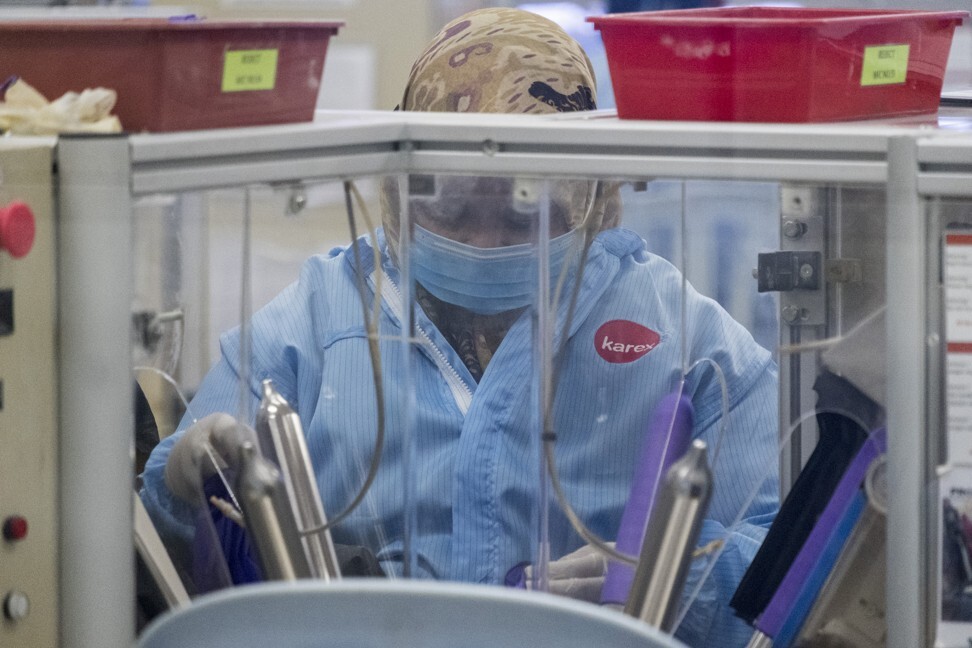
The company has tried to reinvent the condom by tackling issues such as durability and fit. MyOne, for example, is a customisable condom line that allows users to go online with their measurements and find the perfect fit – there are more than 60 different sizes available on its website.
Moving forward, Karex is looking into the feasibility of producing more condoms from synthetic materials.
“The condom world is moving into synthetics. Now, 95 per cent of condoms are still made from natural rubber, but rubber prices have been depressed during the past few years and not much research has been done,” Goh says.
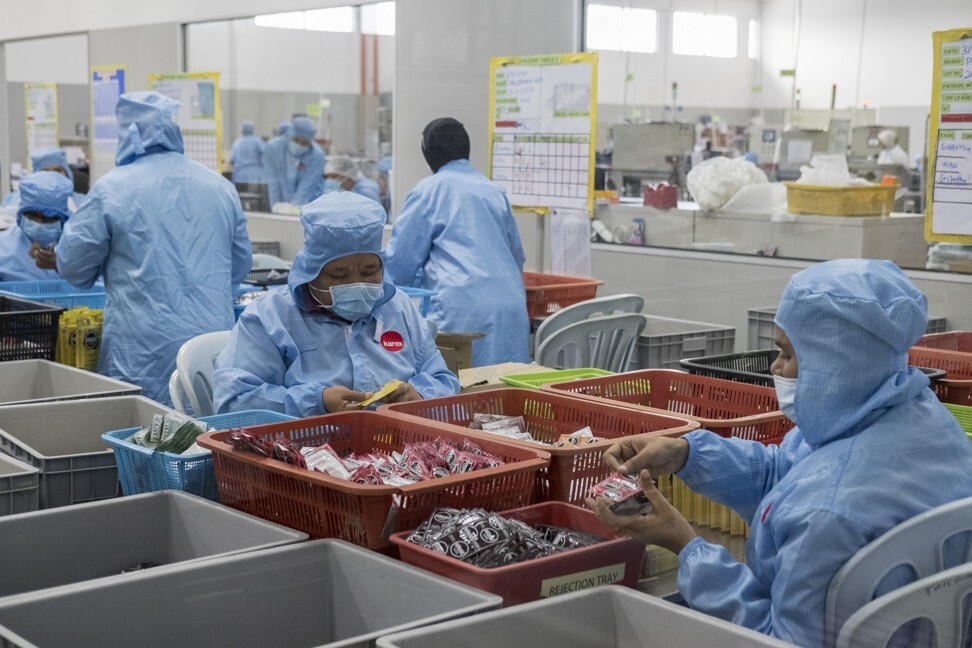
“Malaysia is no longer the number one rubber producer in the world. If we want to produce a product as thin as rubber, there needs to be improvement not only in the processes but also in the materials. We have conducted a few years of research and hope to launch something soon.”
Like the rest of the world, Karex was hit by the Covid-19 pandemic more than 30 years after HIV/Aids, but this time the company has been affected in a different way. Its distribution chain was disrupted when convenience stores, pharmacies and shopping malls were ordered to close amid the Covid-19 pandemic. Production was shut down for 10 days before resuming for a month at only 50 per cent capacity. Now that Karex is fully operational again, and with the help of its largest manufacturing site across the border in Hat Yai, Thailand, it aims to make up for lost time.
